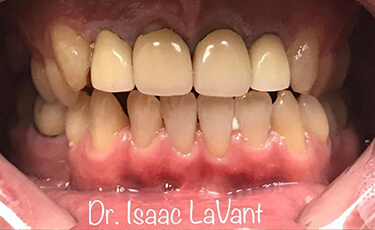Say Goodbye to Teeth Grinding: Tips for a Peaceful Night’s Sleep
Do you wake up to a sore jaw, headaches, or teeth that seem to have been in a wrestling match overnight? You might be grinding your teeth, a condition known as bruxism, which can wreak havoc on your smile and disrupt your peaceful night’s rest. In this comprehensive guide, we’ll walk you through the ins and outs of teeth grinding, its possible origins, and the most effective strategies to manage it, thereby ensuring a serene and undisturbed sleep is no longer just a wish but a nightly reality.
Why Do We Grind Our Teeth?
Bruxism is a phenomenon that often occurs without the grinder’s awareness. It can take place in our sleep (sleep bruxism) or during our waking hours. While there’s no single cause, several factors are repeatedly linked to this condition:
- Stress and Anxiety: Mental tension often manifests physically, leading to the clenching of the jaw.
- Lifestyle Habits: Consuming caffeine and alcohol, common stress relievers, can contribute to teeth grinding.
- Sleep Disorders: It’s often associated with other disorders like snoring and sleep apnea.
- Misaligned Teeth or Bite: When upper and lower teeth do not come together properly, bruxism may occur.
Understanding the root cause is the first step to managing and, in some cases, eliminating bruxism.

The Impact of Teeth Grinding on Health
The repercussions of teeth grinding go beyond dental issues. The habit can lead to or exacerbate a range of problems:
- Damaged Teeth: Continuous grinding wears down tooth enamel and can lead to chips, fractures, and even tooth loss.
- Jaw Pain and Disorders: Chronic grinding can result in temporomandibular joint (TMJ) disorders, leading to pain and difficulty in jaw movement.
- Headaches: Tension in the muscles around the jaw can radiate pain to the head, causing frequent headaches and migraines.
- Sleep Disruptions: Bruxism often leads to poor-quality sleep, which in turn can contribute to daytime fatigue and irritability.
Understanding the health repercussions can foster a sense of urgency in tackling this condition head-on.
Understanding Teeth Grinding
Teeth grinding, scientifically known as bruxism, is an intriguing yet concerning phenomenon that affects a significant portion of the population. It’s a nocturnal habit that often goes unnoticed until someone else hears the grating sound or dental issues begin to surface. This unconscious dental workout predominantly targets the robust molars, and the force exerted can be so intense that it not only disturbs your partner’s sleep but also has the potential to rouse you from your own slumber.
For some lucky individuals, teeth grinding is an infrequent disturbance, a minor hiccup in their otherwise peaceful nighttime routine. However, for many others, it’s a relentless issue, a nightly battle that wreaks havoc on their oral health. Over time, the constant grinding wears down the tooth enamel, making the teeth vulnerable to cavities and sensitivity. In worst-case scenarios, it can even lead to cracked or broken teeth, necessitating major dental procedures to repair the damage.
Understanding teeth grinding is the first step in managing it effectively. Recognizing the signs, such as morning headaches, jaw pain, or increased tooth sensitivity, can help identify the problem early and prevent potential complications. Awareness of this common yet often overlooked condition is crucial for maintaining optimal oral health and ensuring peaceful, restorative sleep.
Causes and Consequences
Understanding the triggers behind teeth grinding is the first step to combatting it. Stress is a significant force in the life of teeth grinders. Anxiety, anger, and frustration can all manifest in the act of grinding, as can certain sleeping disorders, caffeine, alcohol, and smoking. The effects can be significant, leading to damaged teeth, painful jaws, and affected sleep quality.
Chronic bruxism can lead to:
- Worn-down teeth
- Fractured teeth
- Damaged restorations
- Tooth Sensitivity
- Earaches and headaches
- Discomfort when chewing
- Disturbances to the jaw joint, which can cause temporomandibular joint disorders (TMD)
It’s not just an oral health matter; teeth grinding intertwines with sleep quality, stress levels, and overall well-being.
Tips for Prevention and Management
Managing and preventing teeth grinding involves a multi-faceted approach, addressing potential causes and minimizing damage. Here are some effective tips to consider:
Stress Reduction
Given the strong correlation with stress, relaxation techniques can make a monumental difference. Practices like meditation, deep breathing exercises, or even simple adjustments to daily stressors can work wonders. The idea is to reduce overall tension, as well as to create a calm, relaxing atmosphere before bed.
- Practice meditation or mindfulness
- Engage in regular exercise
- Pursue hobbies that relax you
- Prioritize good nutrition and hydration
These strategies are not only beneficial for reducing teeth grinding but also for enhancing your sleep quality.
Nighttime Routine Adjustments
Altering your bedtime routines can have a positive impact, such as:
- Reducing caffeine and alcohol consumption, especially later in the day
- Implementing a sleep schedule to ensure adequate rest and a consistent wake-up time
- Creating a soothing environment with a comfortable bed, good air circulation, and minimal light and noise disturbances
- Avoiding stimulating activities before bed, like work or intense exercise
These changes can help signal to the body and mind that it’s time to unwind, leading to a more peaceful transition into sleep.
Dental Interventions
For those whose bruxism is more severe, dental interventions can offer significant relief and protection. A dentist can create a custom-fitted mouthguard, also known as a splint or occlusal appliance. These devices are worn at night and serve to prevent the surfaces of your teeth from grinding against each other, effectively minimizing the potential for tooth damage.
- Custom-fitted mouthguard
- Orthodontic correction for misaligned teeth
- Dental procedures to reshape teeth and correct bite issues
- Muscle relaxants or stress management techniques prescribed by a doctor

Importance of Seeking Professional Help
While home remedies and lifestyle modifications can provide some relief from bruxism, there’s no substitute for professional intervention. It’s similar to navigating a complex maze – you might make some progress on your own, but having an expert guide can lead you directly to the solution.
Teeth grinding, while seemingly a minor inconvenience, is often a symptom of deeper issues such as stress, anxiety, sleep disorders, or dental problems. Each of these root causes requires a unique approach to treatment, which can only be accurately determined and administered by a healthcare professional.
Persistent bruxism can lead to serious dental complications, including tooth wear and breakage, gum disease, and temporomandibular joint disorders. These aren’t issues that can be resolved with a simple change of diet or a new bedtime routine. They require specialized dental or medical interventions, which are only available through professional channels.
A consultation with a dentist or a healthcare provider can open doors to treatments you might not have known were possible. This could include custom-fitted dental appliances designed to protect your teeth from further damage, behavioral therapies to help manage stress and anxiety, and in severe cases, prescription medications.
While managing symptoms at home is a commendable first step, it’s akin to applying a band-aid to a wound that requires stitches. For long-term relief and prevention of further damage, professional help is essential. It’s not just an investment in your oral health, but also a commitment to improving your overall well-being and quality of life.
In conclusion, teeth grinding is not a condition to be taken lightly. If left unchecked, it can lead to serious dental and health issues. By adopting a proactive approach that involves understanding the causes, making lifestyle adjustments, and seeking professional help when needed, you can significantly reduce its impact and enjoy a better night’s sleep.
Remember, a peaceful sleep leads to a more productive day and a better quality of life. By implementing the strategies outlined in this guide, you’ll not only protect your pearly whites but also pave the way for more restful, rejuvenating slumber. Say hello to waking up refreshed and ready to tackle the day, and goodbye to the nightly grind.
https://www.google.com/maps?cid=10725474417078119454
